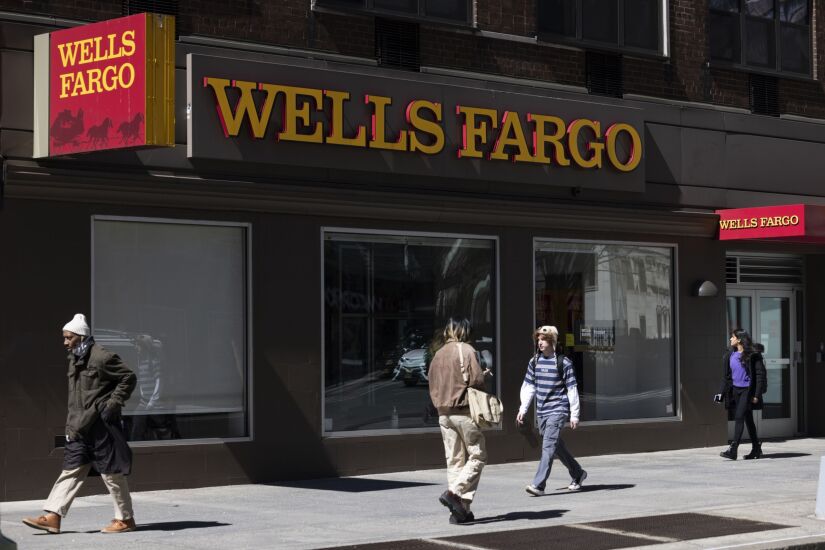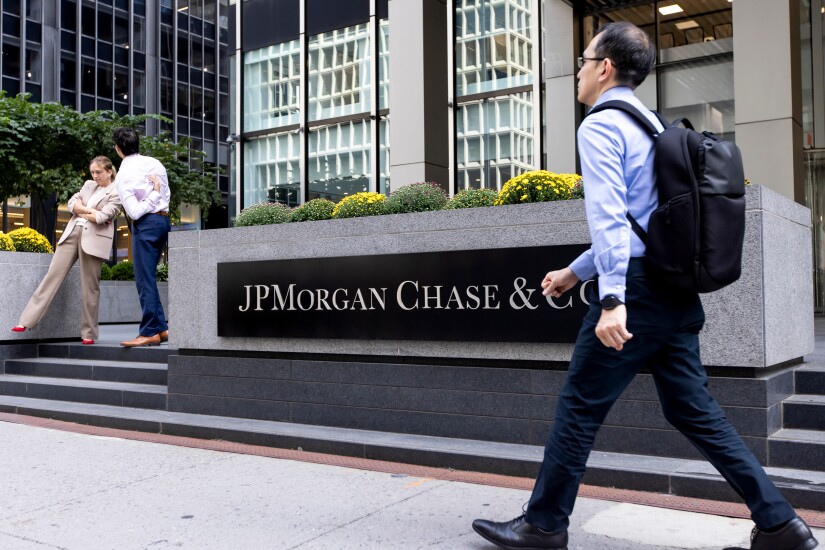
Banks begin reporting their quarterly earnings today, for a period that covers President Donald Trump's return to the White House and his rapid-fire remaking of nearly all levels of the U.S. government.
And while earnings season typically includes a fair share of reflection on banks' performance during the prior three-month period, this time things are different. The
Will the tariffs push the U.S. economy into a recession?
Analysts and investors will be watching to see if banks tweak their 2025 earnings forecasts.
The magnitude of the tariffs announcement on April 2 "seems to have caught many off guard," Jason Goldberg, an analyst at Barclays, wrote in a recent research note. "While it occurred after 1Q25 was in the books, it could reverberate through the tone of management discussions on their earnings calls, as well as on their annual outlooks that were provided in January."
Given the recent chaos, tariffs and the economic outlook "now take center stage," Scott Siefers, an analyst at Piper Sandler, wrote this week in a research note. "We doubt we'll get all the answers we want with earnings, but at least banks will have the chance to respond to the emerging backdrop and to shape expectations about how they will perform within it."
Trump had vowed to stick with his tariffs plan even as market volatility unfolded. The banking sector was hard-hit, with the KBW Nasdaq Bank Index sinking 15% between April 2, when the tariffs were announced, and April 7. Two days later, Trump abruptly changed his mind and said he would pause tariffs on most countries for 90 days. The index rose 9% that day.
Bankers have had to digest a lot since the beginning of the year. Following Trump's inauguration on Jan. 20, the administration has issued a barrage of orders, such as threatening (and then implementing) steep tariffs on Mexico and Canada; telling the Consumer Financial Protection Bureau, a bank regulator, to
Banks have also had to account for interest rates and how the higher-for-longer environment might shake out this year. In March, the Federal Reserve
After Trump announced 10% baseline levies on imports, Federal Reserve Chairman Jerome Powell said it's
Banks have been eager for the Fed to lower rates after hiking them in recent years. Lower rates would mean reduced deposit costs and potentially more commercial loan growth. And some banks could get some relief in
Analysts and investors will be looking for any signs of loan growth during the first quarter and the lending outlook for the rest of the year amid the tariff uncertainty.
Siefers, in his note, said large-bank loan growth and fee income are at risk, but net interest income outlooks "should hold in OK for now" and capital levels remain strong.
READ MORE: See American Banker's














